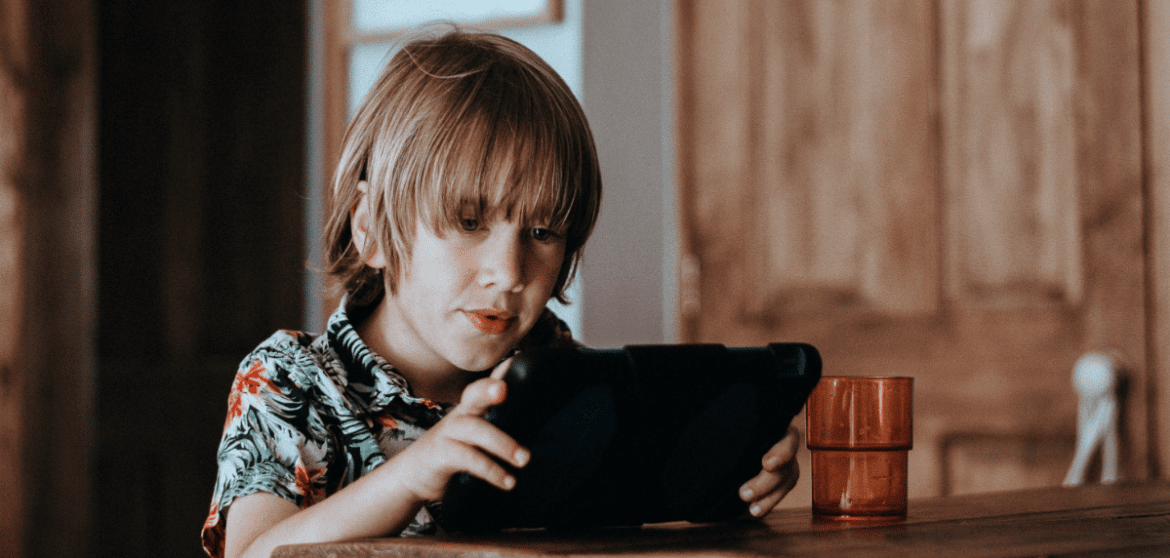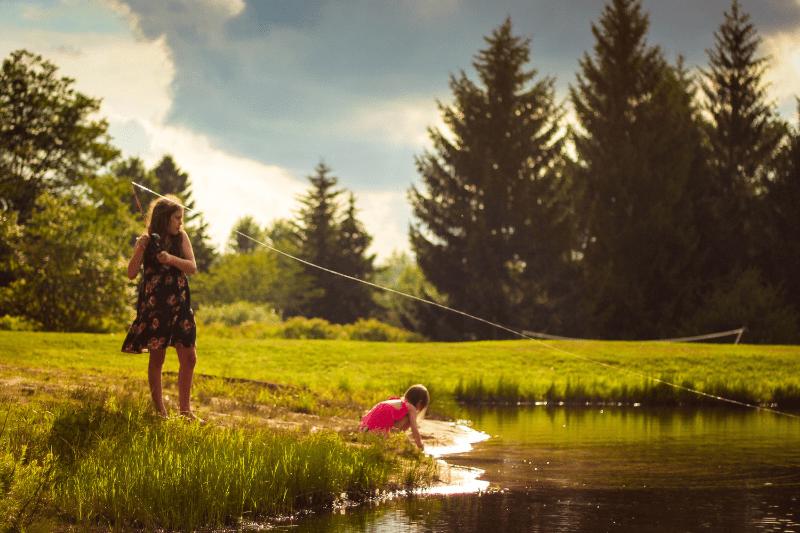There are many ways in which this generation’s childhood is different from that of previous generations, but one of the most glaring contrasts is the degree to which it is being spent indoors. “The Indoor Generation” as it has been dubbed, is the first generation where less time is spent outdoors and more time is spent in a near solitary state with screens providing ‘companionship’.
And it’s not just children who are suffering as a result of more time spent indoors; modern advances in technology means that it is far too easy for us as adults to shop online, communicate with friends, work from home and just stay inside without making any real-life social connections for hours, days, and sometimes weeks on end.
A YouGov study found that eight in 10 people spend close to 22 hours inside every day. One in six people actually admitted that they almost never go outside, and spend up to 24 hours a day indoors. Compared to previous generations when 90% of people’s jobs would be outside, these days less than a quarter of the population spend the majority of their working day outside.
But Why Are We Spending More Time Indoors?
One huge reason is technology. With the advent of the internet, smartphones, tablets, smart TV, computers and advances in video games, we have more distractions than ever before to keep us from stepping outside. We now use technology in all aspects of our life, even dating is regularly done online meaning that if we don’t want to leave the comfort of our sofa, we don’t have to.
That said, it would perhaps be too simplistic to purely blame technology for keeping us indoors. There are other social and cultural factors at play here too.
For example, town planning. Sadly the cost of land has increased to such an extent there is much more emphasis on building apartment blocks, office complexes and industrial units than in retaining our natural green spaces. Although many urban areas are becoming more aware of the importance of outdoor recreational spaces, there are still financial pressures to maximise the revenue of a piece of land, and unfortunately ‘green’ just doesn’t have the financial return of industry.
Another factor to consider when asking why we are spending more time indoors, is the fact that the world seems a much more scary place, making us more reluctant to let our children play outside unsupervised. Cars are faster, streets are busier and there seems to be dangers lurking on every corner. Indeed, research by the National Children’s Bureau shows that nearly 50% of parents fear ‘strangers’ which is why they don’t let their children play outside.
The question to ask, which makes this a bit of a chicken/egg situation, is are there really more dangers around than there were 30 years ago? Or are we just more aware of them because of technology and the internet bringing the news right under our noses daily? Certainly worth a thought.
In addition to these factors, we can perhaps blame having a risk-averse culture for making us more nervous and less likely to push our boundaries by venturing outside. The fear of being sued is a very real issue for many childcare providers, organisations and outdoor space providers, meaning that our outdoor activities are restricted through fears of ‘what if’.
Is Being Indoors Actually More Damaging than Being Outdoors?
Before fully condemning a life spent primarily indoors, we need to look plainly at the facts of indoor vs outdoor when considering if the indoor generation is at a risk. By assessing the benefits of each, we can see if indoor life is really more damaging to our mental and physical health, or whether it is just presumed harm.
Benefit of Indoors
- Indoor play for children can be hugely beneficial for imagination
- Indoor activities such as reading books can improve memory, knowledge and cognitive function
- If living in a heavily polluted city then indoor living can be less damaging to your health than breathing in toxic vehicle fumes
- If you live in a dangerous neighbourhood then remaining indoors may prove to be the only sanctuary to keep you and your family safe from danger
Benefit of Outdoors
- Scientific studies have proven that outdoor play leads to children who are physically and mentally stronger, more confident and socially better adjusted
- The outdoors is an open and constantly changing environment where it is possible to experience freedom, gross and boisterous movements as well as contact with natural elements. These vital developmental triggers can’t be replicated indoors and are necessary for growth, bone strength and fitness for people of all ages, but especially for children
- Being exposed to fresh air, sunshine and natural light is hugely beneficial for us mentally and can help fight depression and improve brain function (as discussed in journalist Florence Williams’ book The Nature Fix)
- Being outdoors is better for our physical health and has been proven to lower blood pressure, lower cortisol (the stress hormone), eliminate fatigue and a study undertaken in 2008 even showed that being outside can help to protect your eyesight.
- Moving more is crucial to overall physical health and fitness. Being outdoors usually involves some kind of exercise (walking, swimming) and so it naturally follows that being outdoors more will see you with a reduced risk of obesity and the health issues associated with this growing epidemic.
- Being outdoors lowers blood pressure and calms anxiety. A study in Japan showed that walking in the forest lowered participants’ average pulse by almost 4% and blood pressure by just over 2%.
- According to a study undertaken by Velux, indoor air can be five times more polluted than outdoor air. Living with stale air can cause physical health issues ranging from itchy eyes, headaches and troubled sleep to asthma and allergies. Getting outside more can help to eradicate these health problems and give you a cleaner way of life.
- Vitamin D from sunshine is needed by our bodies for so many crucial functions, from bone development to our immune system.
Exercise happens best when it’s done outside in the fresh air.
- With more room to play and use of balls, bikes and other outside toys, a more fully-rounded active play is instigated which is the best kind of play for children.
- Manipulating real-world objects and navigating real environments outdoors helps children to develop motor skills and spatial awareness.
- Harvard Medical School says that unstructured time spent with other children helps us learn crucial skills such as troubleshooting, multitasking, and creativity. Time spent outside with other children gives them the opportunity to make up their own games, amuse themselves and practice crucial life and language skills.
- Taking risks is an important stepping stone in development. Yes, you can break your arm falling from a tree, but unless children learn these risks themselves they won’t be properly equipped to go into adult life. Lessons we learn from failure are equally as important as those we learn from success.
- Nature often induces awe, wonder, and reverence, all emotions known to have a variety of benefits, promoting everything from well-being and altruism to humility to health
- Interaction with natural elements such as the soil helps build immunity and it’s crucial for children and adults alike to make contact with harmless microbes to provide protection from disease and illness.
- Being outdoors and away from artificial lights helps to synchronise your biology to natural circadian rhythms. Scientists have shown that our connection to natural light/dark cycles helps to regulate our sleep, our moods, our stress levels, and our hormones. So you’ll sleep better and feel better as a result.
And so the list goes on…
A recent study by Environmental Health Perspectives showed that greater exposure to nature was associated with a 12% lower mortality rate. The evidence towards outdoor life being more beneficial to us as humans is overwhelming.
6 Tips on How to Get Outdoors More
In understanding the health and mental benefits of being outdoors, we can hopefully understand how crucial it is to make time to experience nature and natural daylight as much as possible.
But when our busy lives are so governed by technology and our life seems to centre around being inside, how can we ensure that we are getting enough outdoor time? Here are some hints and tips on getting outdoors more:
1) Relax
The washing up can wait, the tidying can be done later… get outside for a walk before the sun goes down and soak up that vitamin D. Just stretching your legs as you walk around the block/park will do wonders for your health and mind. Making a regular routine (like putting your outdoor clothes on as soon as you get home from work!) will mean that you’ll soon feel like you need it every day (which of course you do!). It’s also important to relax when letting your children go out to play. Yes, of course you need to protect them and keep them from harm, but letting them have the freedom to explore (within reason and with pre-arranged boundaries) will prove incredibly beneficial to them and their physical and social development.
2) Preparation
The weather in the UK sometimes makes it seem difficult to get outside. Try not to think of bad weather as an obstacle, it’s merely a matter of wearing the right clothing! By being prepared and wearing appropriate weatherproof clothing then the rain and wind can actually prove invigorating – it’s all a state of mind.
3) Make the Right Choices
Don’t jump on that bus, leave home half an hour earlier and walk to work instead. Instead of catching the tube why don’t you consider riding your bike? Encourage your family to go for a long walk in nature instead of the usual trip into town; exploring nature up close and personal will prove a bonding and beneficial experience to you all. This can be easier said than done (especially when trying to tear teenagers away from their screens), but everyone will hopefully soon see the benefits and begin to enjoy these breaks in nature.
4) Make the Most of What You Have Available
You don’t have to hike up mountains to benefit from being outdoors- even just stepping into your garden, doing some weeding in your window box, or enjoying the sounds of nature can have amazing benefits to your health. Trying to fit as much nature into your everyday life will really help you mentally and physically.
5) Eat Outdoors
Easier said than done in the UK (!) but a picnic or BBQ is a great way of relaxing and enjoying the outdoors. If you usually eat at your desk then make sure you go outside to eat your lunch at least a few times a week to give your brain a break and enjoy from respite from being indoors. Make eating al fresco a fun part of family life and everyone will look forward to time spent outside and you’ll do it more as a result.
6) Have a Technology Hiatus
Allocating set time for turning off the wifi box, putting down the phone and switching off the television few hours a week will give you more time for enjoying the outdoors and you’ll see huge benefits both physically and mentally. Leave your phone at home! Going outside without the distraction of technology means that you’ll notice the vibrant colours, the sound of the birds singing and the rustle of the leaves… it will lead you to a natural state of mindfulness and as a result feel more grounded and calm.
Getting outside is not only a preference for good health, but a necessity. We should all try to enjoy the outdoors as much as possible. Let’s break out of the cage and release the ‘indoor generation’ into the wild – the next generation will thank us for it.


